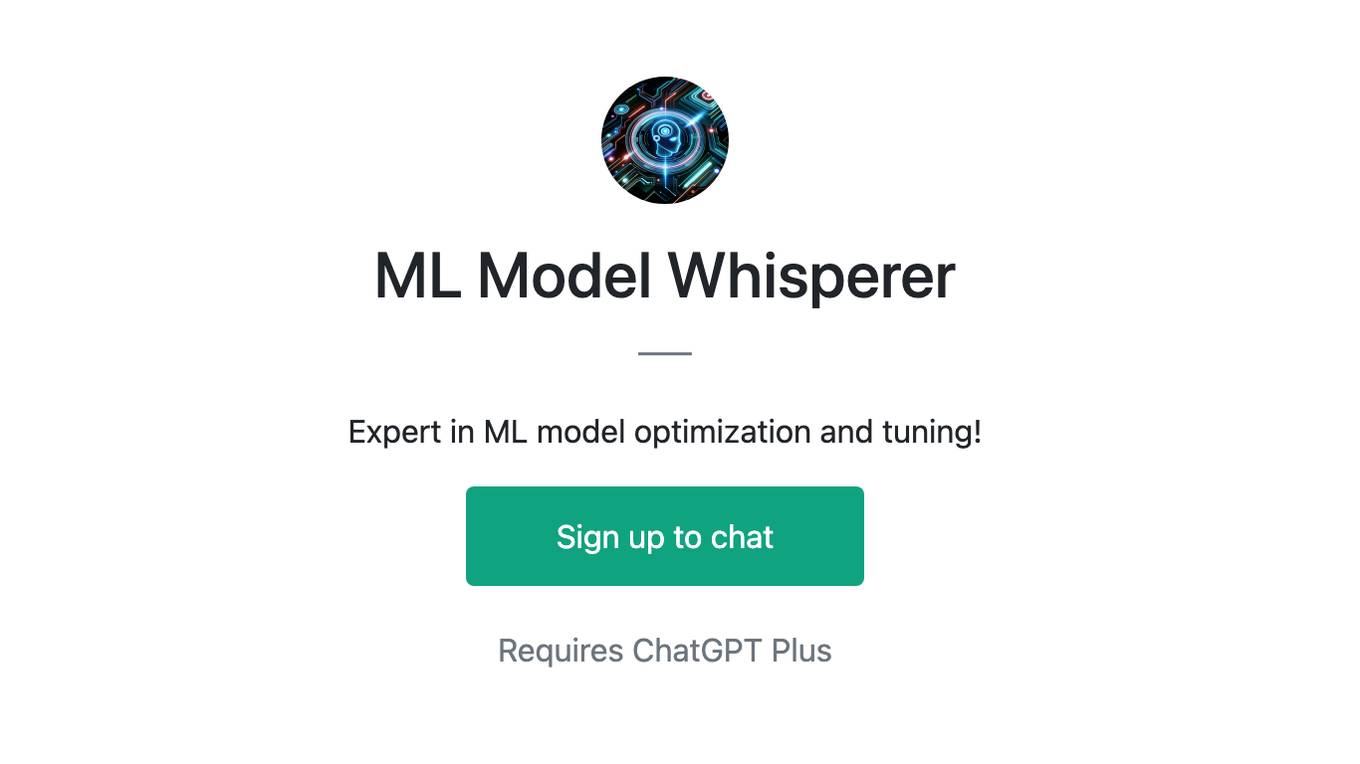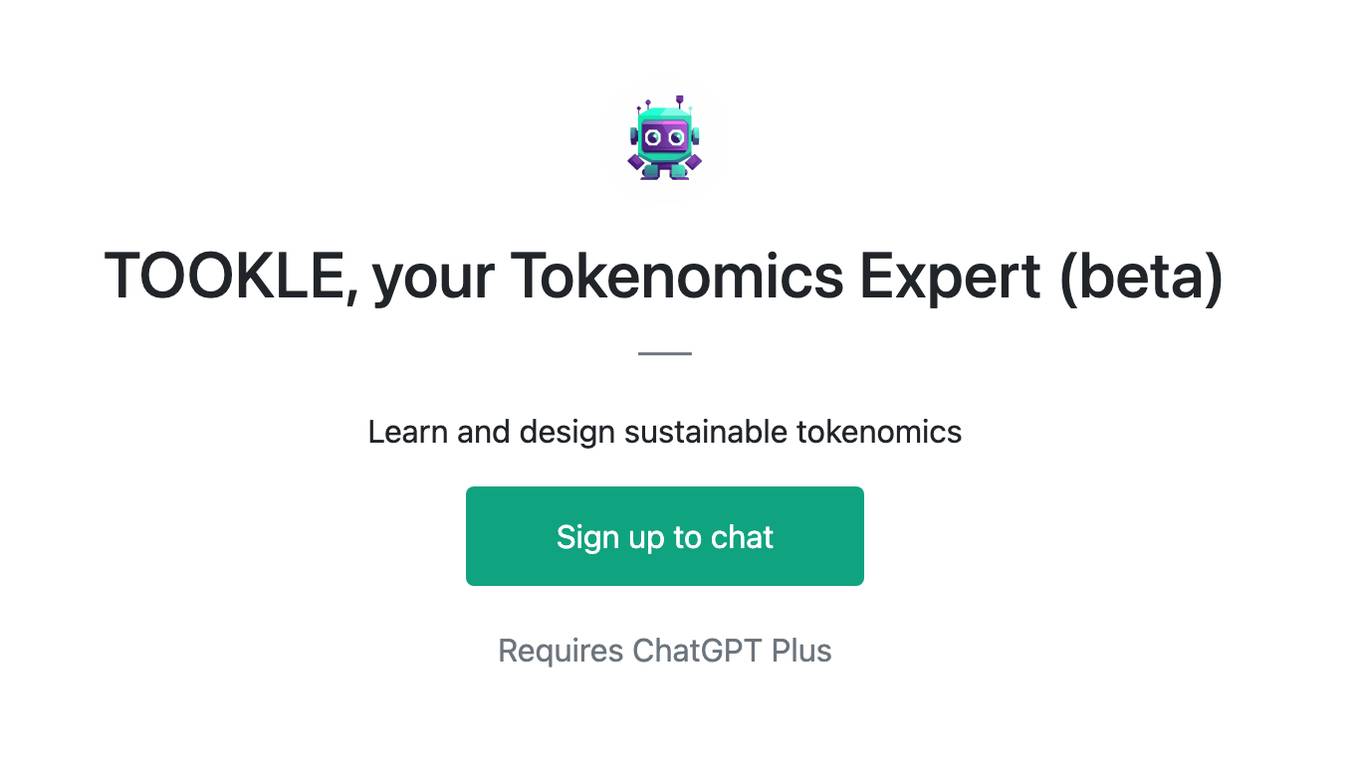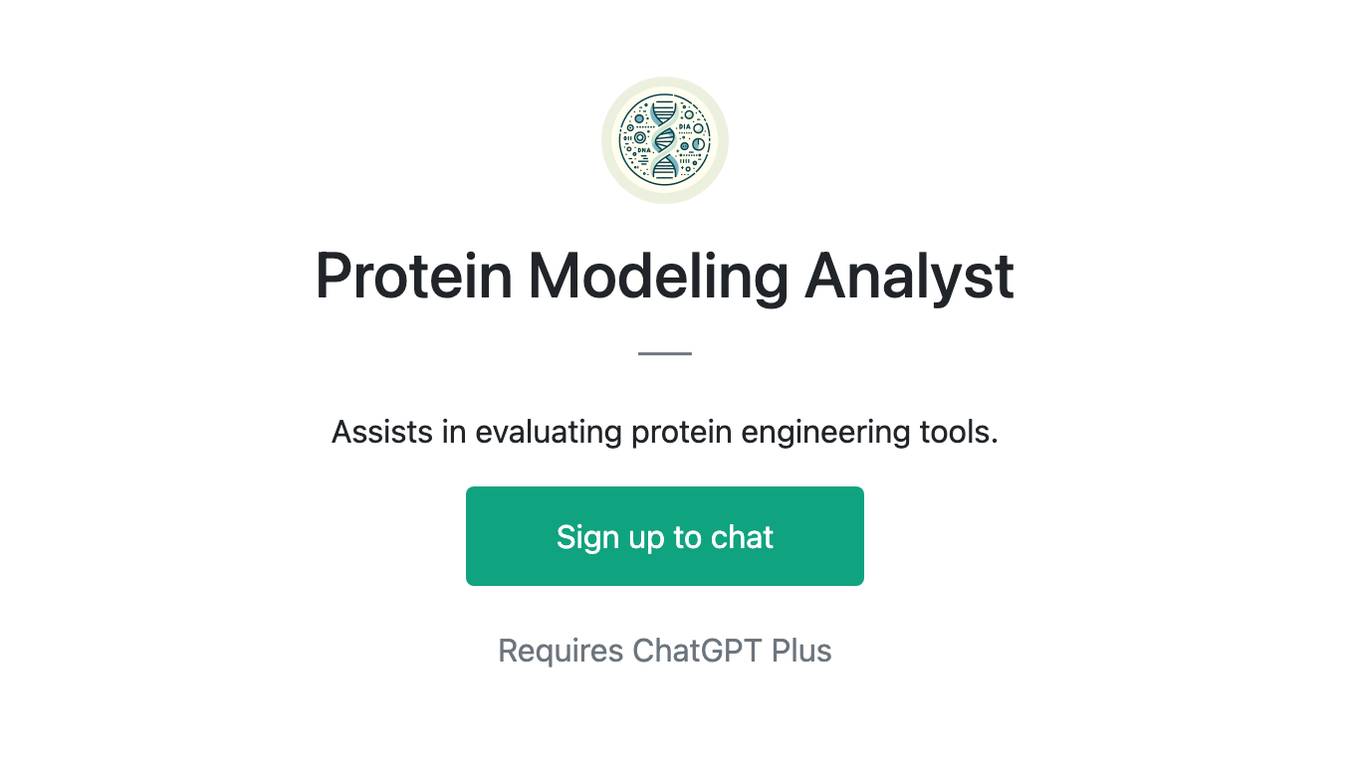Best AI tools for< Evaluate Models >
20 - AI tool Sites

BenchLLM
BenchLLM is an AI tool designed for AI engineers to evaluate LLM-powered apps by running and evaluating models with a powerful CLI. It allows users to build test suites, choose evaluation strategies, and generate quality reports. The tool supports OpenAI, Langchain, and other APIs out of the box, offering automation, visualization of reports, and monitoring of model performance.

SuperAnnotate
SuperAnnotate is an AI data platform that simplifies and accelerates model-building by unifying the AI pipeline. It enables users to create, curate, and evaluate datasets efficiently, leading to the development of better models faster. The platform offers features like connecting any data source, building customizable UIs, creating high-quality datasets, evaluating models, and deploying models seamlessly. SuperAnnotate ensures global security and privacy measures for data protection.
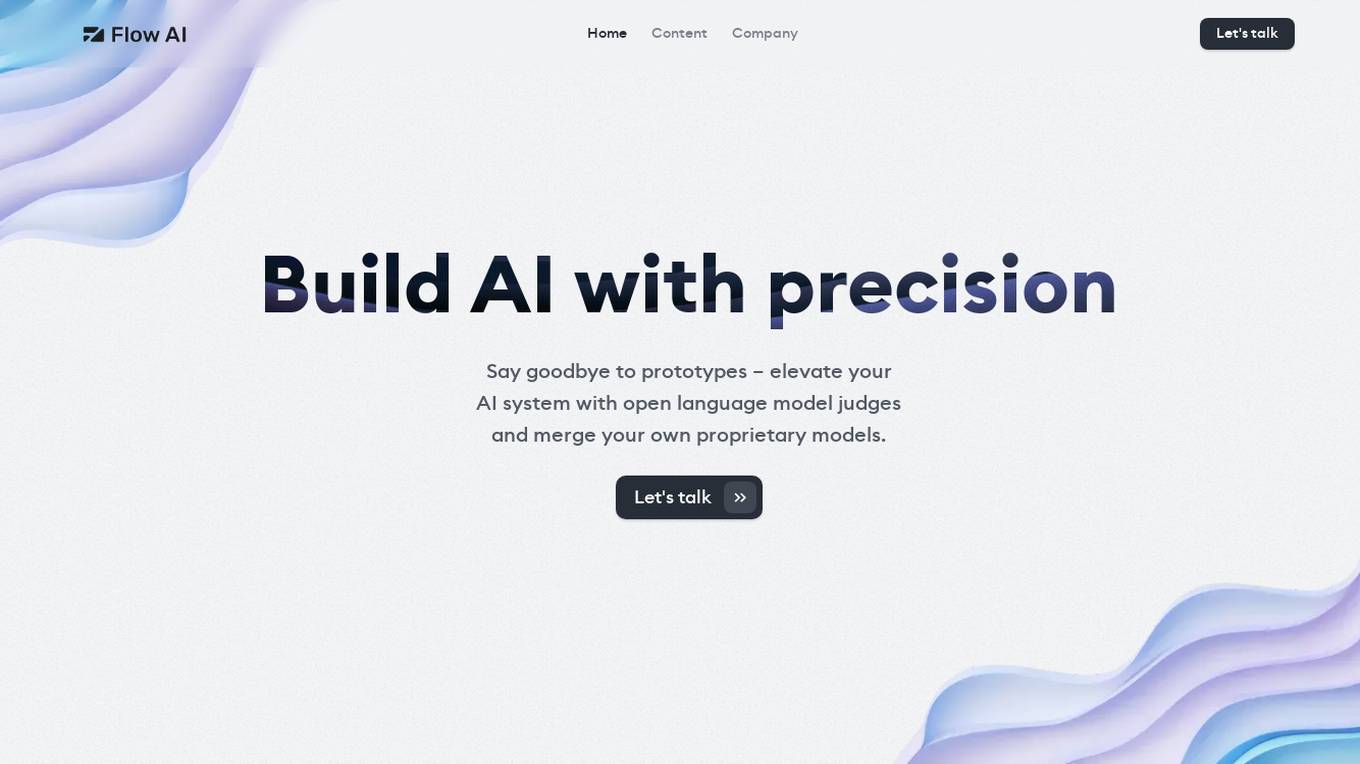
Flow AI
Flow AI is an advanced AI tool designed for evaluating and improving Large Language Model (LLM) applications. It offers a unique system for creating custom evaluators, deploying them with an API, and developing specialized LMs tailored to specific use cases. The tool aims to revolutionize AI evaluation and model development by providing transparent, cost-effective, and controllable solutions for AI teams across various domains.
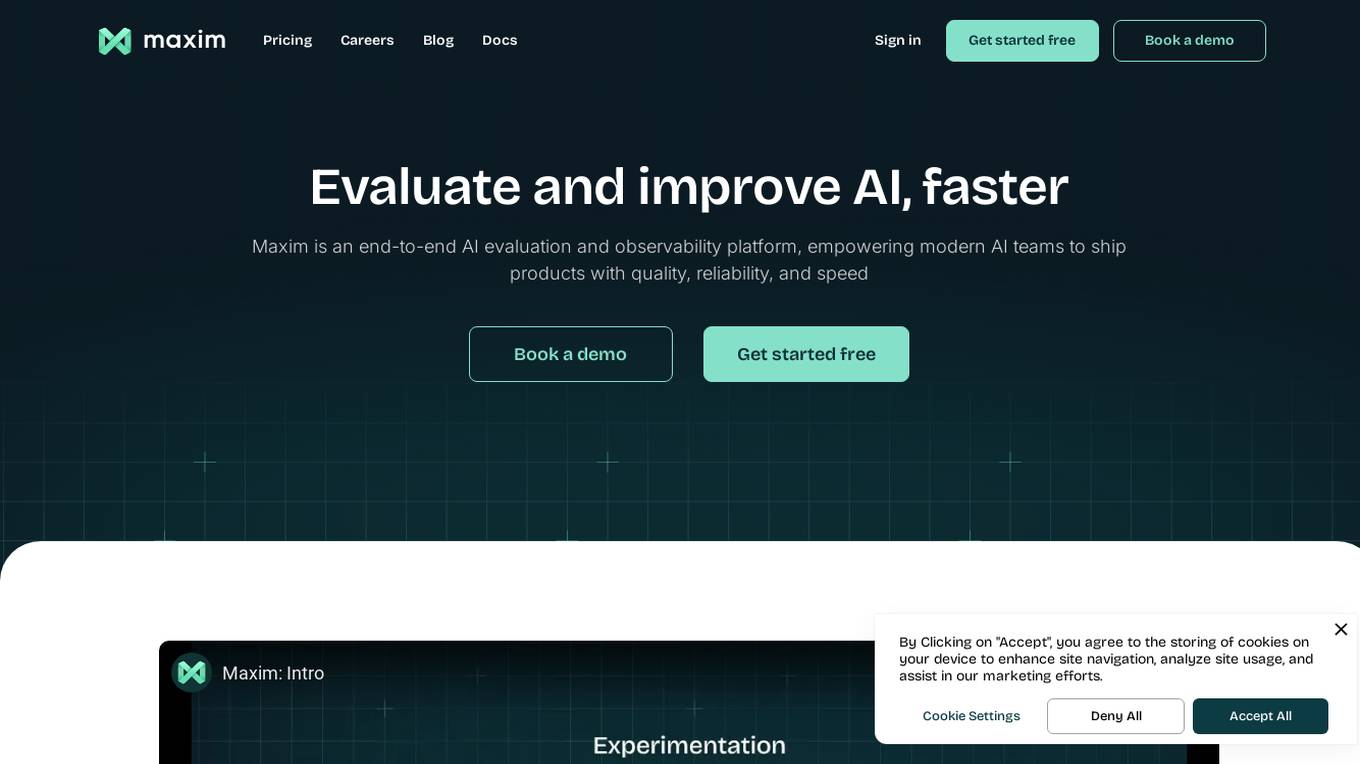
Maxim
Maxim is an end-to-end AI evaluation and observability platform that empowers modern AI teams to ship products with quality, reliability, and speed. It offers a comprehensive suite of tools for experimentation, evaluation, observability, and data management. Maxim aims to bring the best practices of traditional software development into non-deterministic AI workflows, enabling rapid iteration and deployment of AI models. The platform caters to the needs of AI developers, data scientists, and machine learning engineers by providing a unified framework for evaluation, visual flows for workflow testing, and observability features for monitoring and optimizing AI systems in real-time.
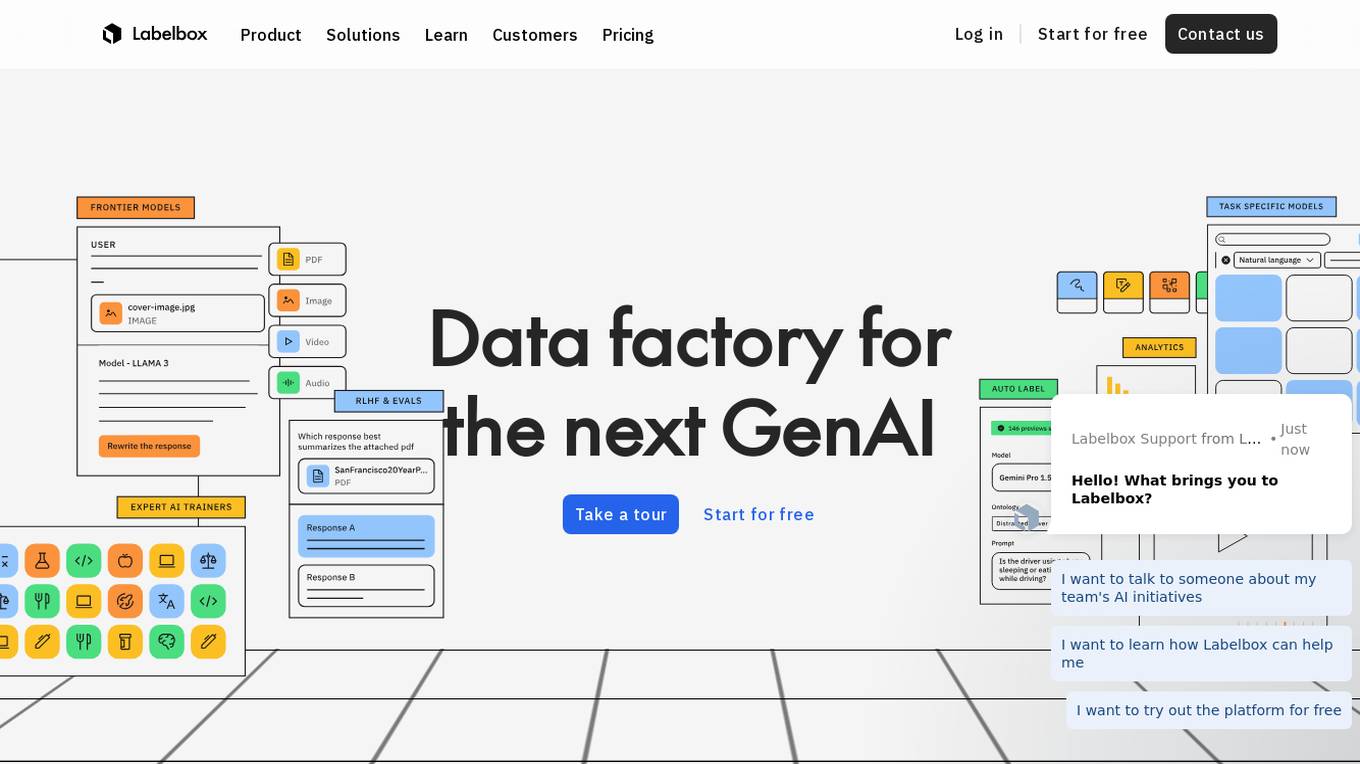
Labelbox
Labelbox is a data factory platform that empowers AI teams to manage data labeling, train models, and create better data with internet scale RLHF platform. It offers an all-in-one solution comprising tooling and services powered by a global community of domain experts. Labelbox operates a global data labeling infrastructure and operations for AI workloads, providing expert human network for data labeling in various domains. The platform also includes AI-assisted alignment for maximum efficiency, data curation, model training, and labeling services. Customers achieve breakthroughs with high-quality data through Labelbox.
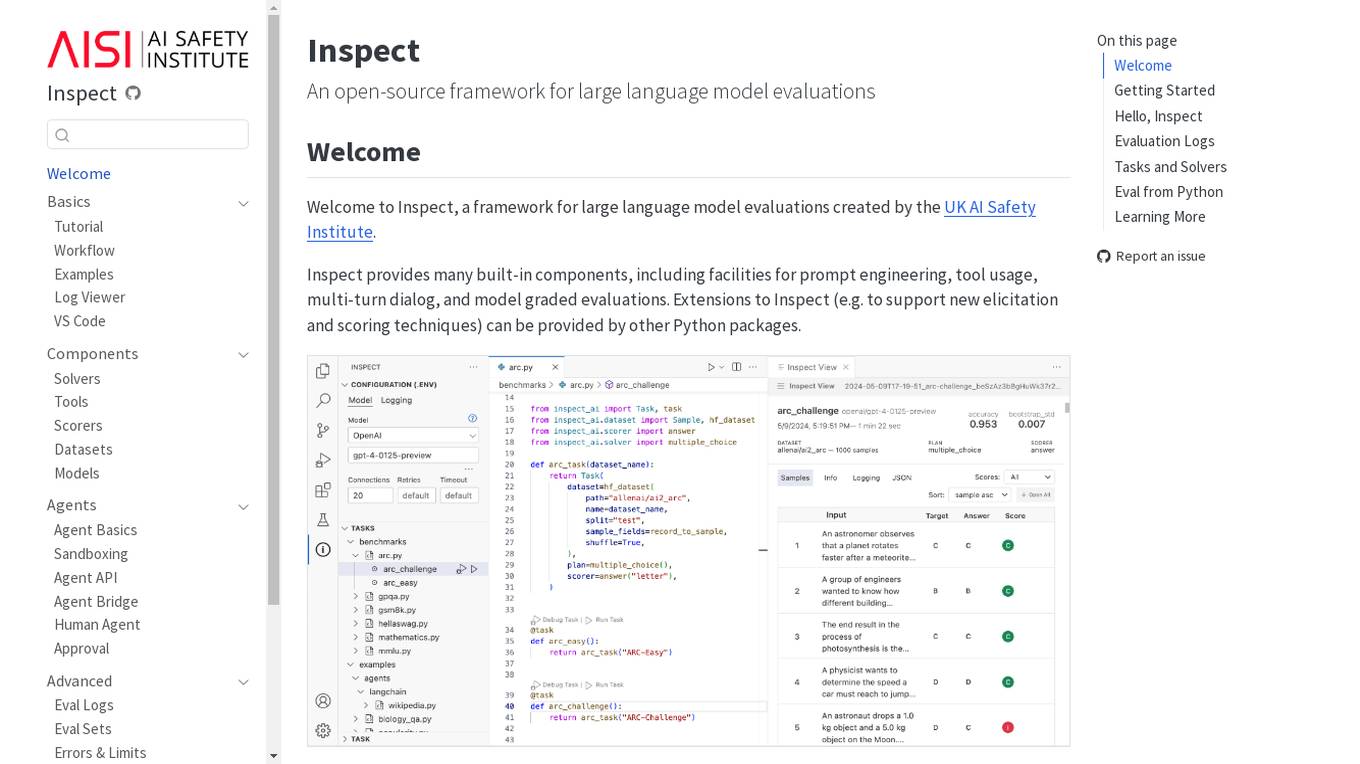
Inspect
Inspect is an open-source framework for large language model evaluations created by the UK AI Safety Institute. It provides built-in components for prompt engineering, tool usage, multi-turn dialog, and model graded evaluations. Users can explore various solvers, tools, scorers, datasets, and models to create advanced evaluations. Inspect supports extensions for new elicitation and scoring techniques through Python packages.
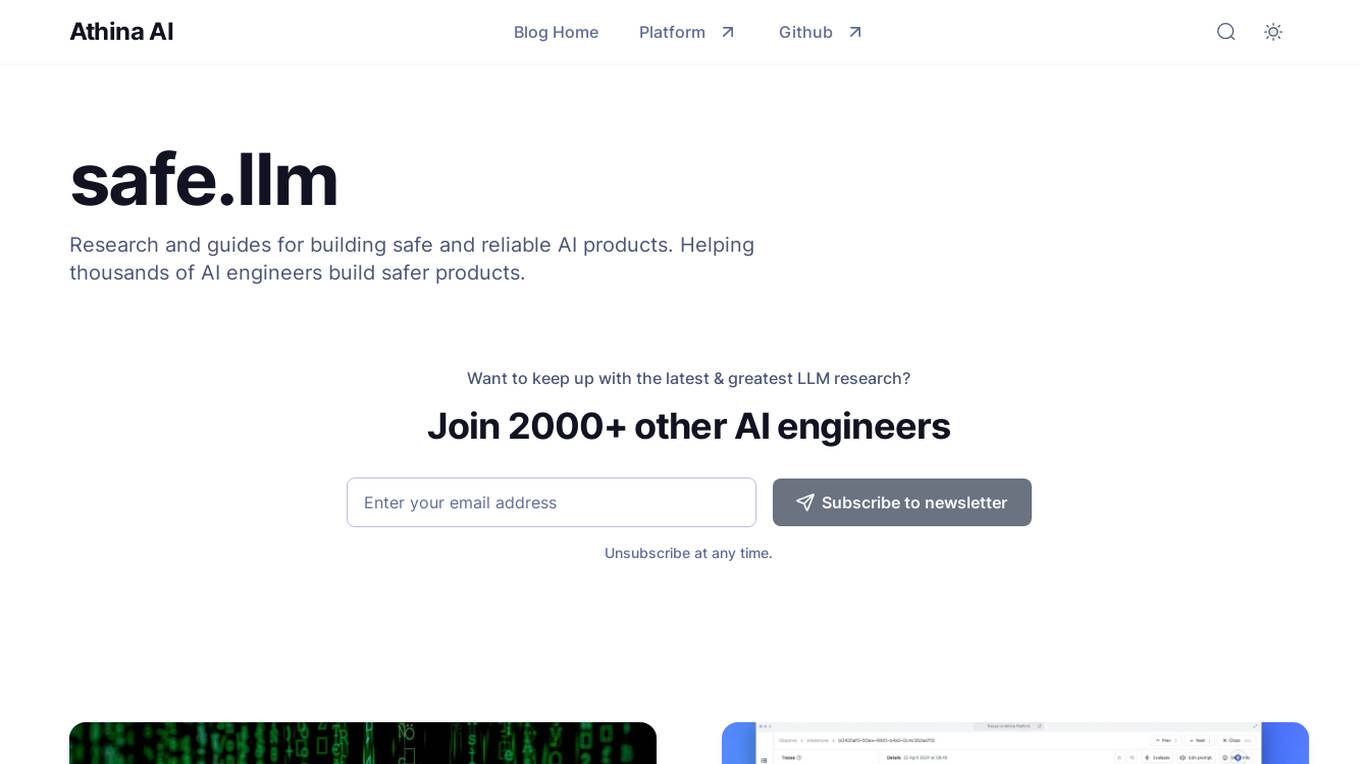
Athina AI
Athina AI is a platform that provides research and guides for building safe and reliable AI products. It helps thousands of AI engineers in building safer products by offering tutorials, research papers, and evaluation techniques related to large language models. The platform focuses on safety, prompt engineering, hallucinations, and evaluation of AI models.
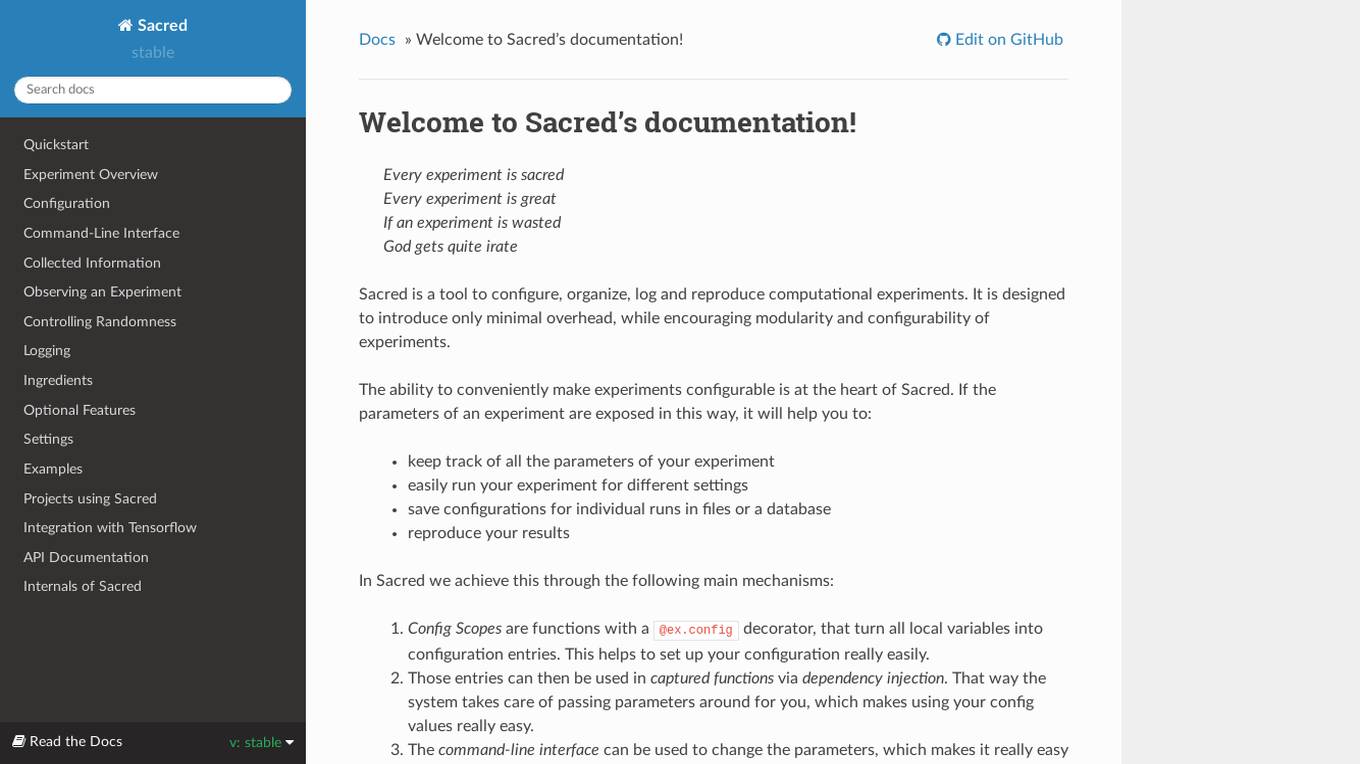
Sacred
Sacred is a tool to configure, organize, log and reproduce computational experiments. It is designed to introduce only minimal overhead, while encouraging modularity and configurability of experiments. The ability to conveniently make experiments configurable is at the heart of Sacred. If the parameters of an experiment are exposed in this way, it will help you to: keep track of all the parameters of your experiment easily run your experiment for different settings save configurations for individual runs in files or a database reproduce your results In Sacred we achieve this through the following main mechanisms: Config Scopes are functions with a @ex.config decorator, that turn all local variables into configuration entries. This helps to set up your configuration really easily. Those entries can then be used in captured functions via dependency injection. That way the system takes care of passing parameters around for you, which makes using your config values really easy. The command-line interface can be used to change the parameters, which makes it really easy to run your experiment with modified parameters. Observers log every information about your experiment and the configuration you used, and saves them for example to a Database. This helps to keep track of all your experiments. Automatic seeding helps controlling the randomness in your experiments, such that they stay reproducible.
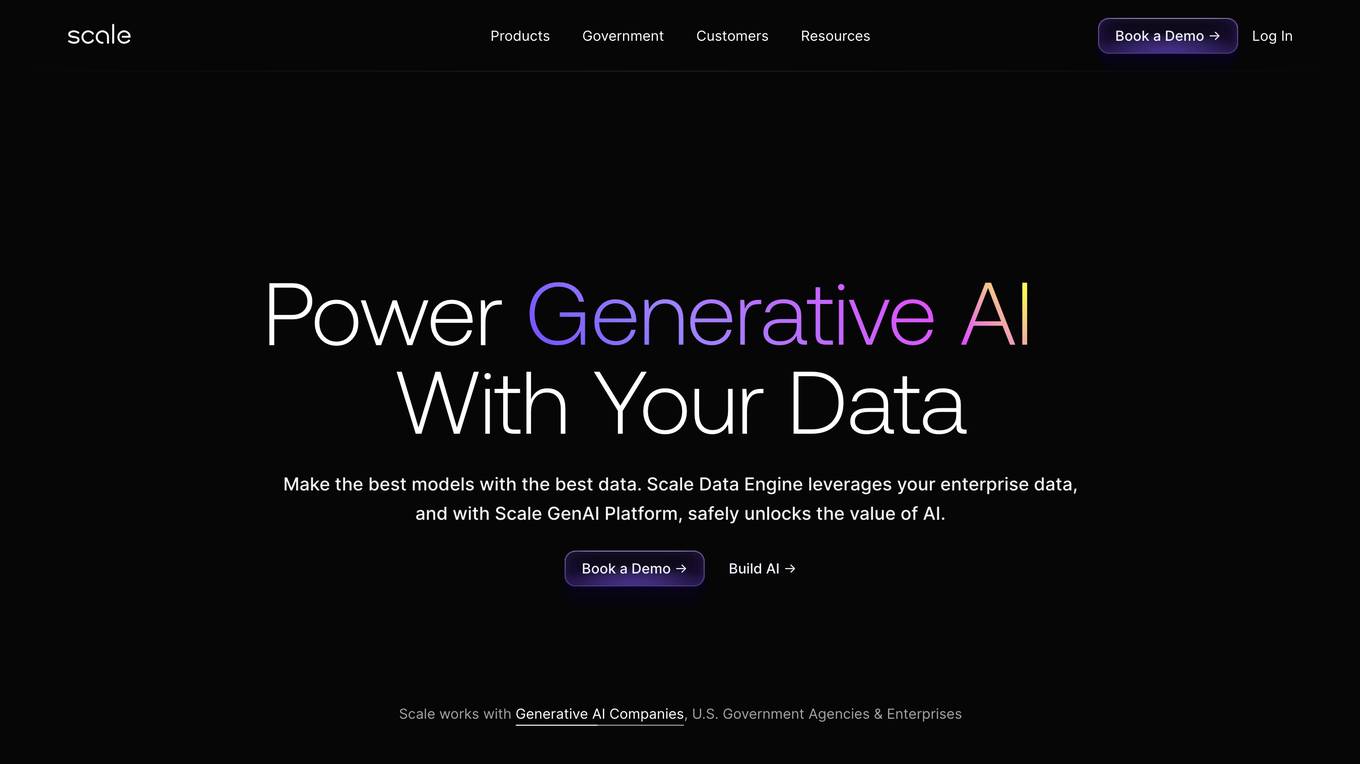
Scale AI
Scale AI is an AI tool that accelerates the development of AI applications for enterprise, government, and automotive sectors. It offers Scale Data Engine for generative AI, Scale GenAI Platform, and evaluation services for model developers. The platform leverages enterprise data to build sustainable AI programs and partners with leading AI models. Scale's focus on generative AI applications, data labeling, and model evaluation sets it apart in the AI industry.
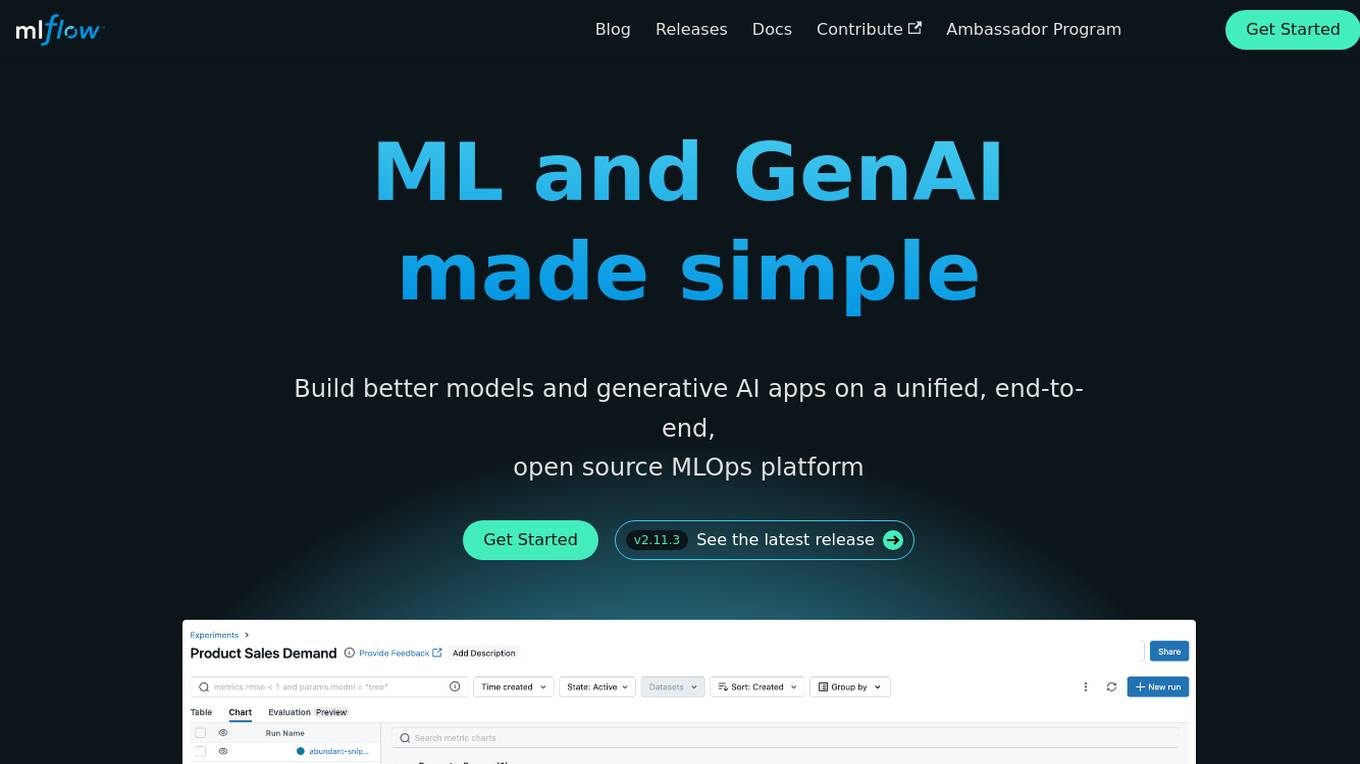
MLflow
MLflow is an open source platform for managing the end-to-end machine learning (ML) lifecycle, including tracking experiments, packaging models, deploying models, and managing model registries. It provides a unified platform for both traditional ML and generative AI applications.
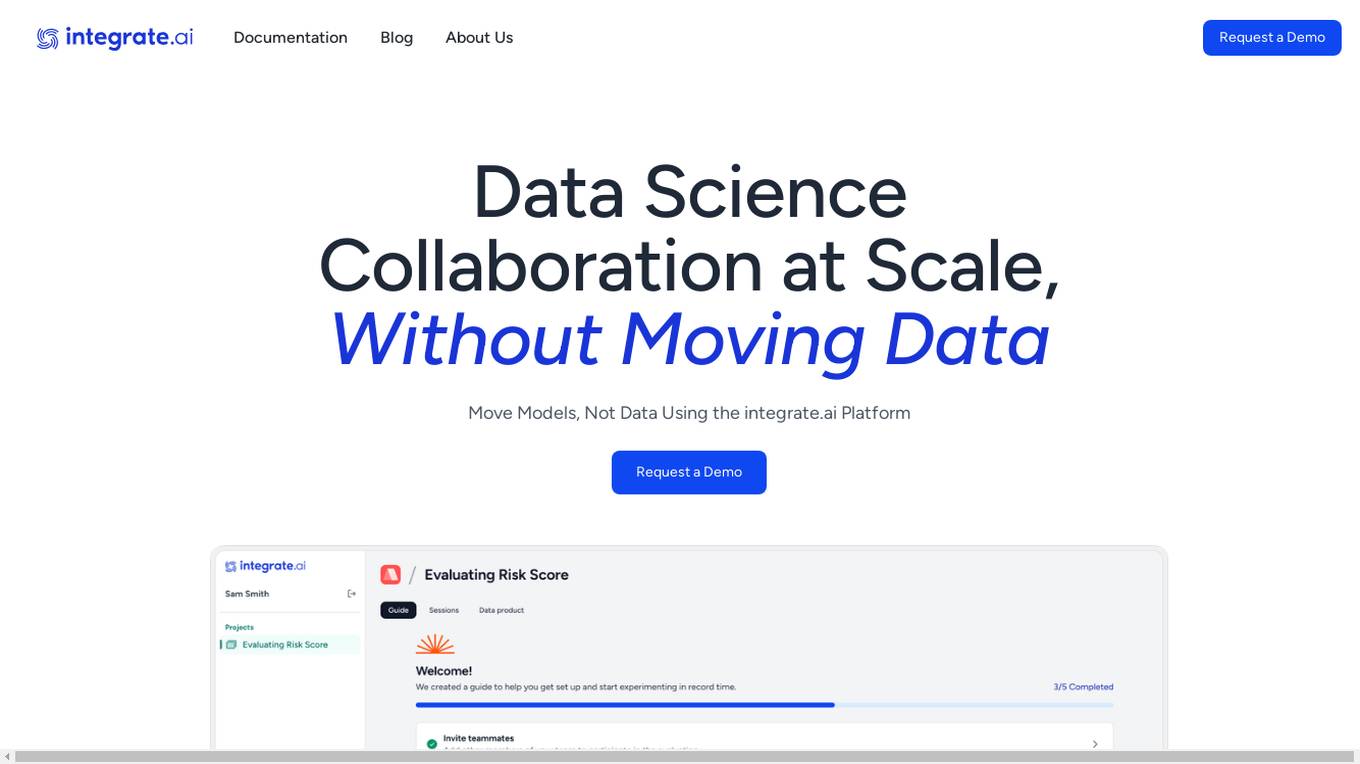
integrate.ai
integrate.ai is a platform that enables data and analytics providers to collaborate easily with enterprise data science teams without moving data. Powered by federated learning technology, the platform allows for efficient proof of concepts, data experimentation, infrastructure agnostic evaluations, collaborative data evaluations, and data governance controls. It supports various data science jobs such as match rate analysis, exploratory data analysis, correlation analysis, model performance analysis, feature importance & data influence, and model validation. The platform integrates with popular data science tools like Azure, Jupyter, Databricks, AWS, GCP, Snowflake, Pandas, PyTorch, MLflow, and scikit-learn.
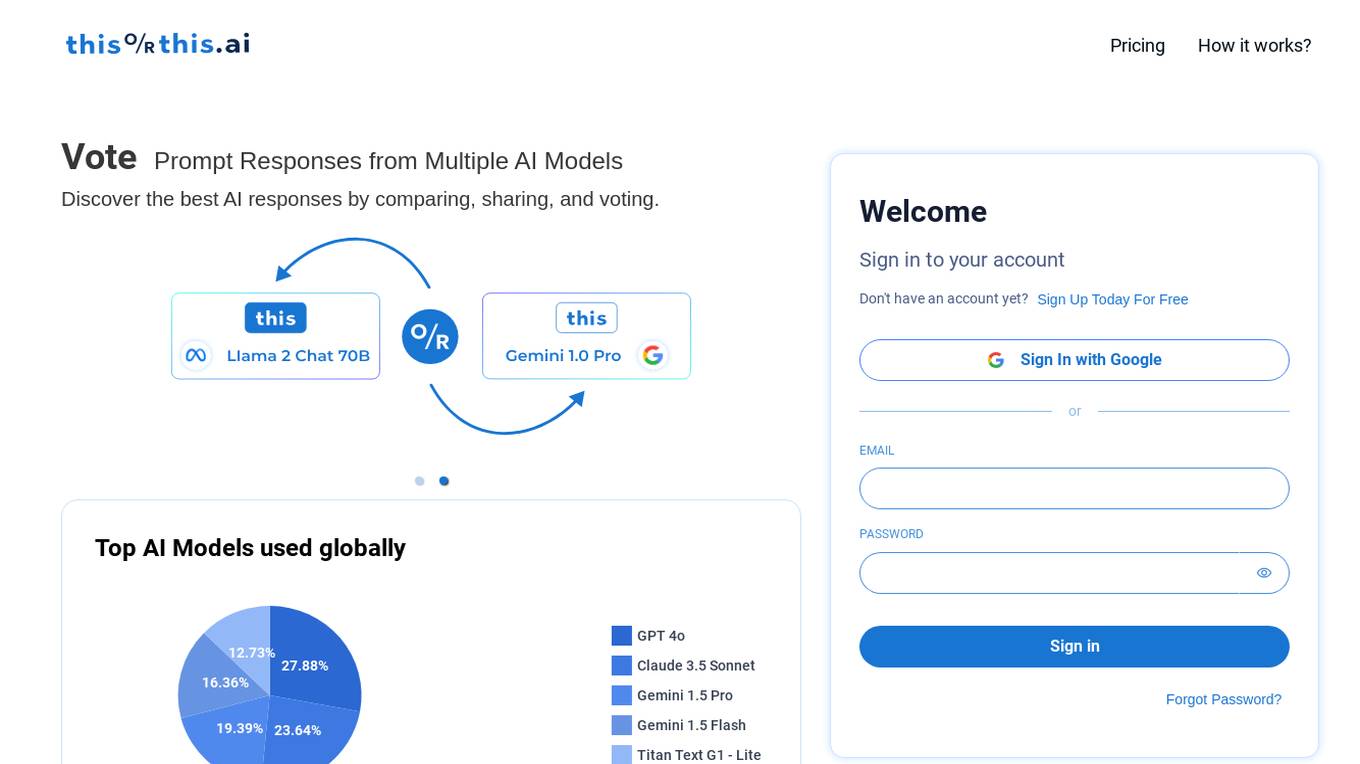
thisorthis.ai
thisorthis.ai is an AI tool that allows users to compare generative AI models and AI model responses. It helps users analyze and evaluate different AI models to make informed decisions. The tool requires JavaScript to be enabled for optimal functionality.

Evidently AI
Evidently AI is an open-source machine learning (ML) monitoring and observability platform that helps data scientists and ML engineers evaluate, test, and monitor ML models from validation to production. It provides a centralized hub for ML in production, including data quality monitoring, data drift monitoring, ML model performance monitoring, and NLP and LLM monitoring. Evidently AI's features include customizable reports, structured checks for data and models, and a Python library for ML monitoring. It is designed to be easy to use, with a simple setup process and a user-friendly interface. Evidently AI is used by over 2,500 data scientists and ML engineers worldwide, and it has been featured in publications such as Forbes, VentureBeat, and TechCrunch.
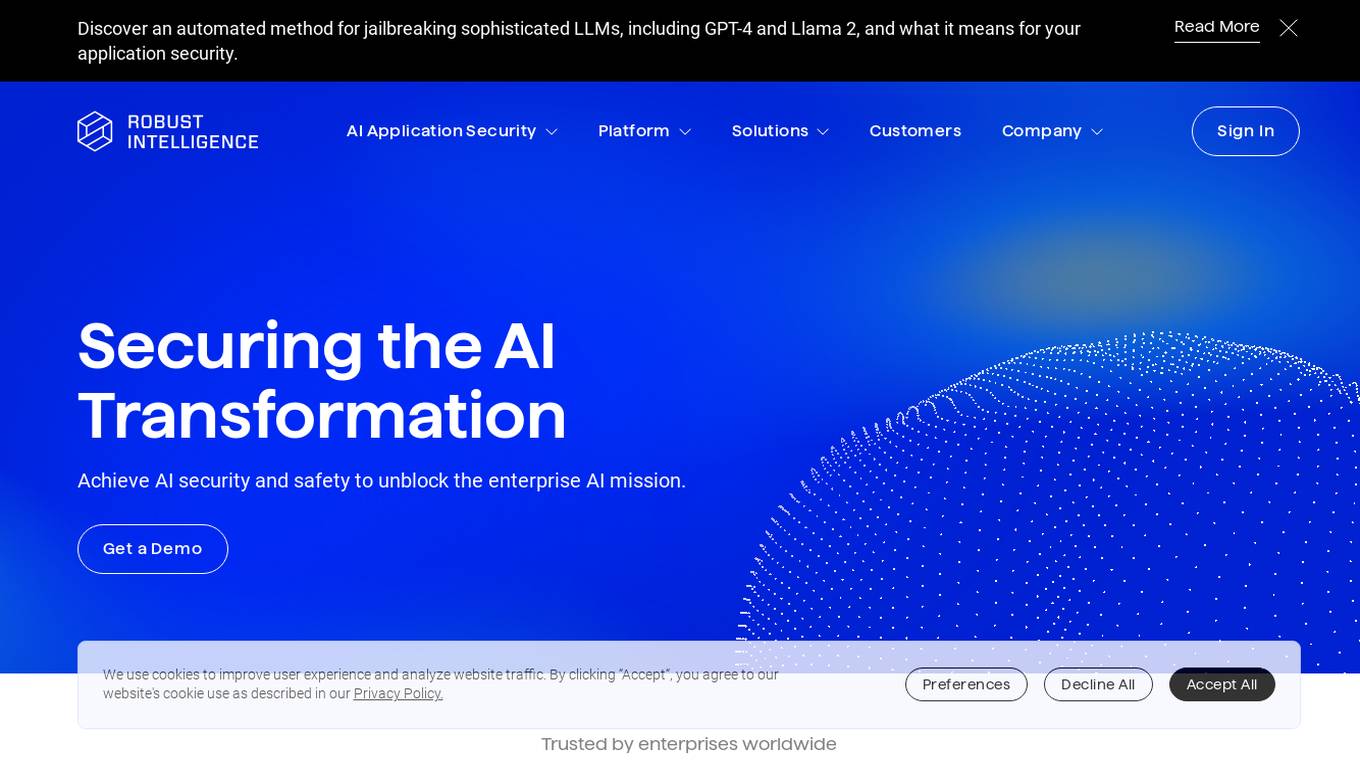
Robust Intelligence
Robust Intelligence is an end-to-end solution for securing AI applications. It automates the evaluation of AI models, data, and files for security and safety vulnerabilities and provides guardrails for AI applications in production against integrity, privacy, abuse, and availability violations. Robust Intelligence helps enterprises remove AI security blockers, save time and resources, meet AI safety and security standards, align AI security across stakeholders, and protect against evolving threats.
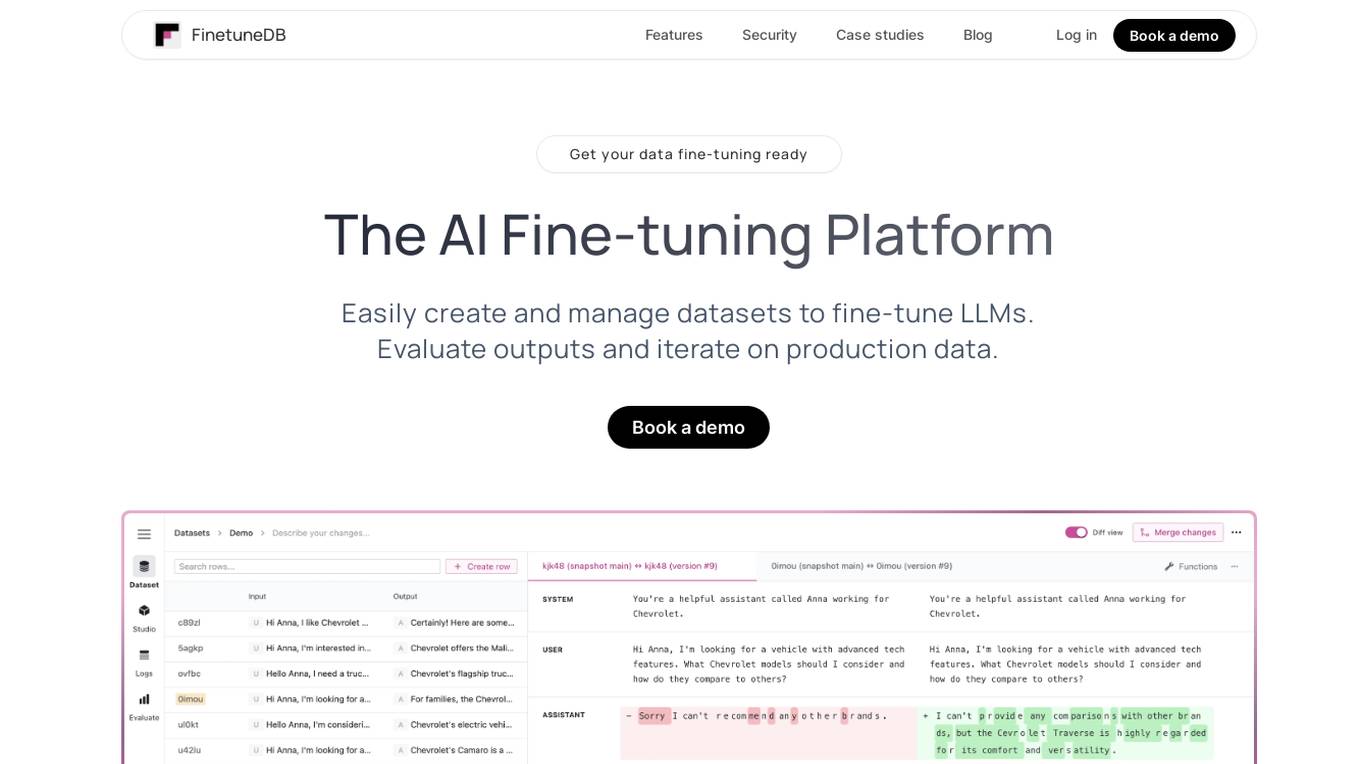
FinetuneDB
FinetuneDB is an AI fine-tuning platform that allows users to easily create and manage datasets to fine-tune LLMs, evaluate outputs, and iterate on production data. It integrates with open-source and proprietary foundation models, and provides a collaborative editor for building datasets. FinetuneDB also offers a variety of features for evaluating model performance, including human and AI feedback, automated evaluations, and model metrics tracking.
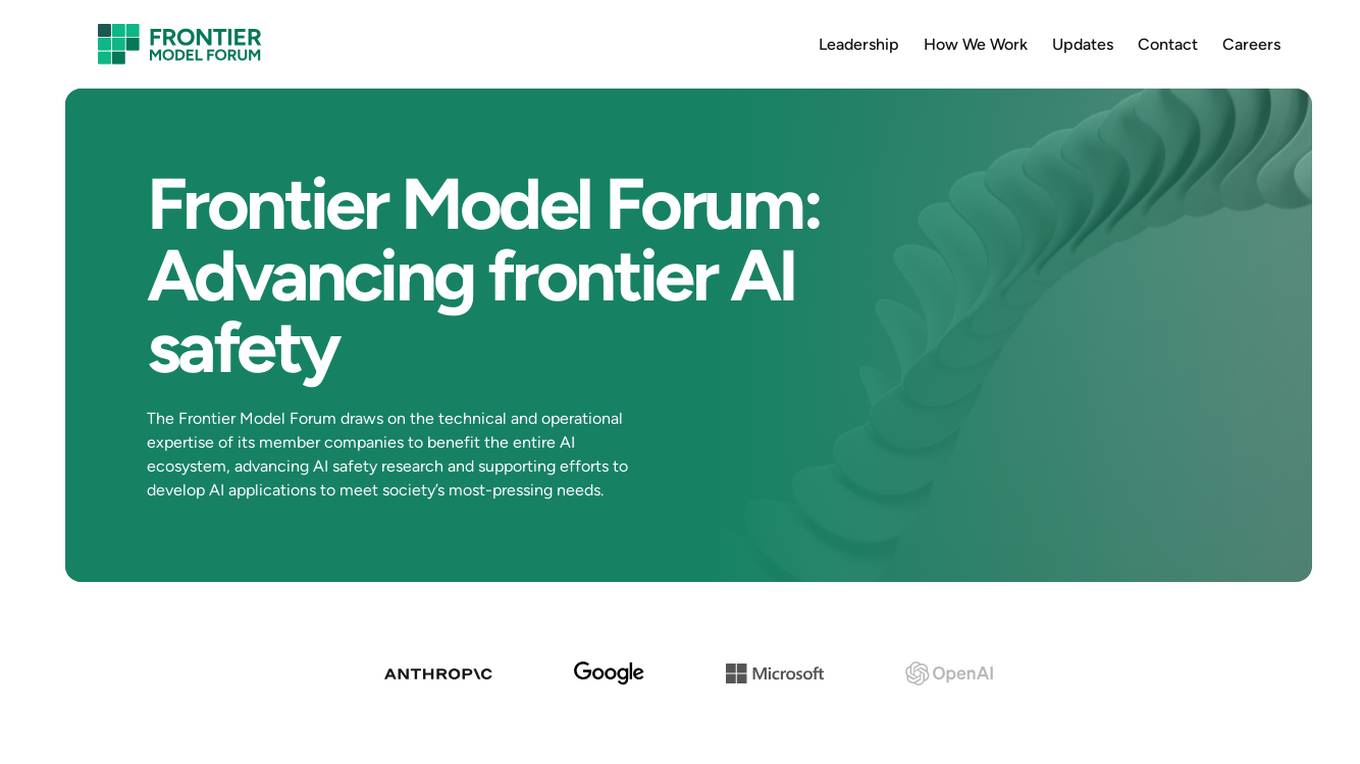
Frontier Model Forum
The Frontier Model Forum (FMF) is a collaborative effort among leading AI companies to advance AI safety and responsibility. The FMF brings together technical and operational expertise to identify best practices, conduct research, and support the development of AI applications that meet society's most pressing needs. The FMF's core objectives include advancing AI safety research, identifying best practices, collaborating across sectors, and helping AI meet society's greatest challenges.
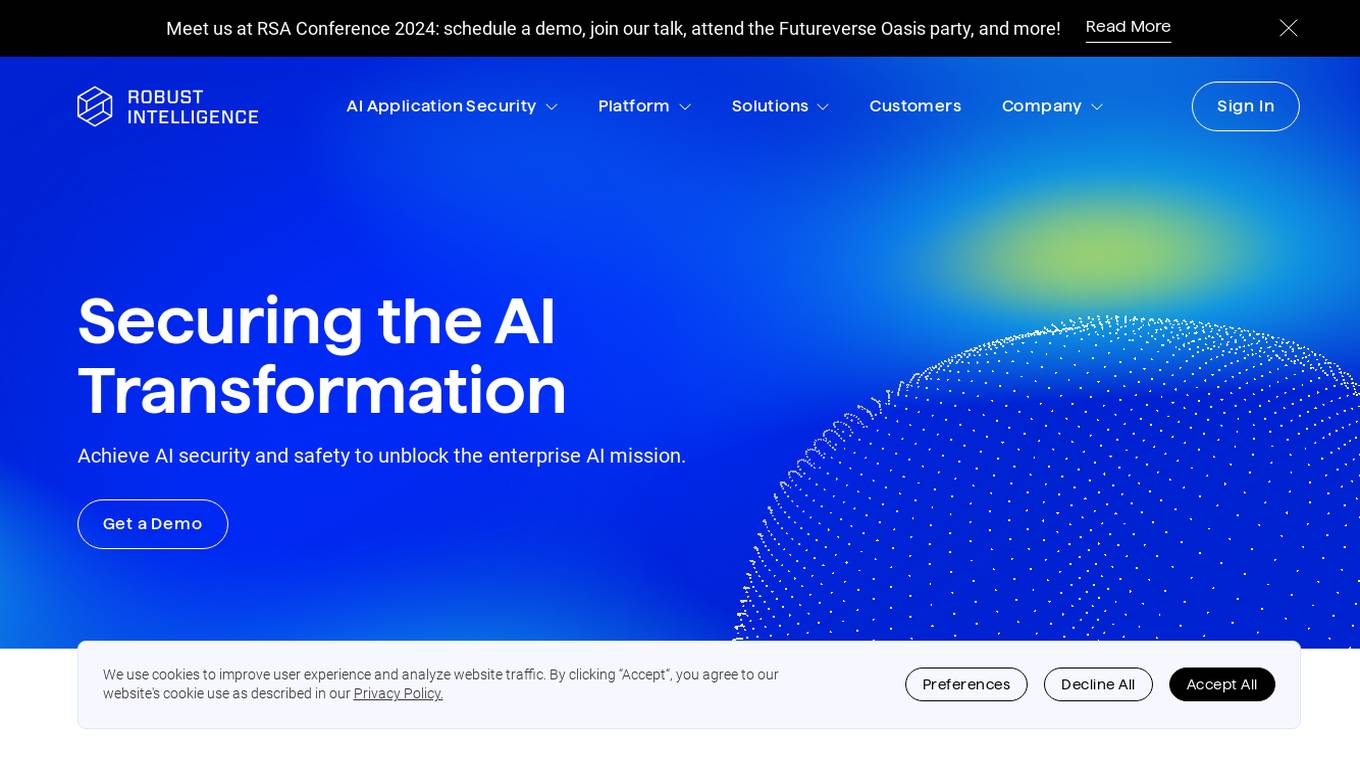
Robust Intelligence
Robust Intelligence is an end-to-end security solution for AI applications. It automates the evaluation of AI models, data, and files for security and safety vulnerabilities and provides guardrails for AI applications in production against integrity, privacy, abuse, and availability violations. Robust Intelligence helps enterprises remove AI security blockers, save time and resources, meet AI safety and security standards, align AI security across stakeholders, and protect against evolving threats.

MeDA School
MeDA School is an educational platform dedicated to promoting and nurturing talents in the field of Medical Artificial Intelligence (AI). The platform aims to establish a solid foundation for intelligent and precision medical talent pools in Taiwan and globally. MeDA School facilitates interaction and communication among members of the intelligent medical ecosystem, fostering deep understanding and trust in the operation and tasks of medical AI. The platform offers a blend of virtual and physical courses, inviting domain experts to share cutting-edge knowledge and integrating interdisciplinary knowledge to be practically applied in various fields.
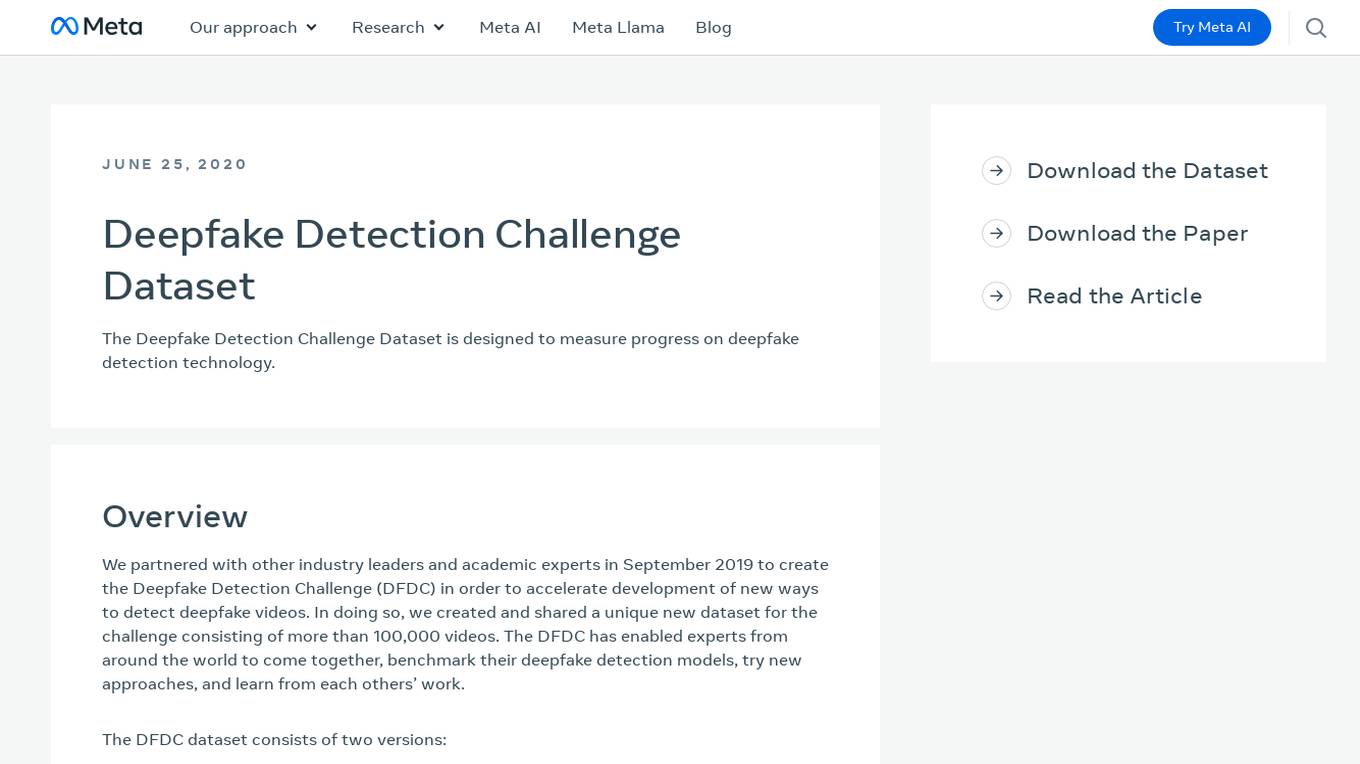
Deepfake Detection Challenge Dataset
The Deepfake Detection Challenge Dataset is a project initiated by Facebook AI to accelerate the development of new ways to detect deepfake videos. The dataset consists of over 100,000 videos and was created in collaboration with industry leaders and academic experts. It includes two versions: a preview dataset with 5k videos and a full dataset with 124k videos, each featuring facial modification algorithms. The dataset was used in a Kaggle competition to create better models for detecting manipulated media. The top-performing models achieved high accuracy on the public dataset but faced challenges when tested against the black box dataset, highlighting the importance of generalization in deepfake detection. The project aims to encourage the research community to continue advancing in detecting harmful manipulated media.

Lumenova AI
Lumenova AI is an AI platform that focuses on making AI ethical, transparent, and compliant. It provides solutions for AI governance, assessment, risk management, and compliance. The platform offers comprehensive evaluation and assessment of AI models, proactive risk management solutions, and simplified compliance management. Lumenova AI aims to help enterprises navigate the future confidently by ensuring responsible AI practices and compliance with regulations.
0 - Open Source AI Tools
20 - OpenAI Gpts

Instructor GCP ML
Formador para la certificación de ML Engineer en GCP, con respuestas y explicaciones detalladas.
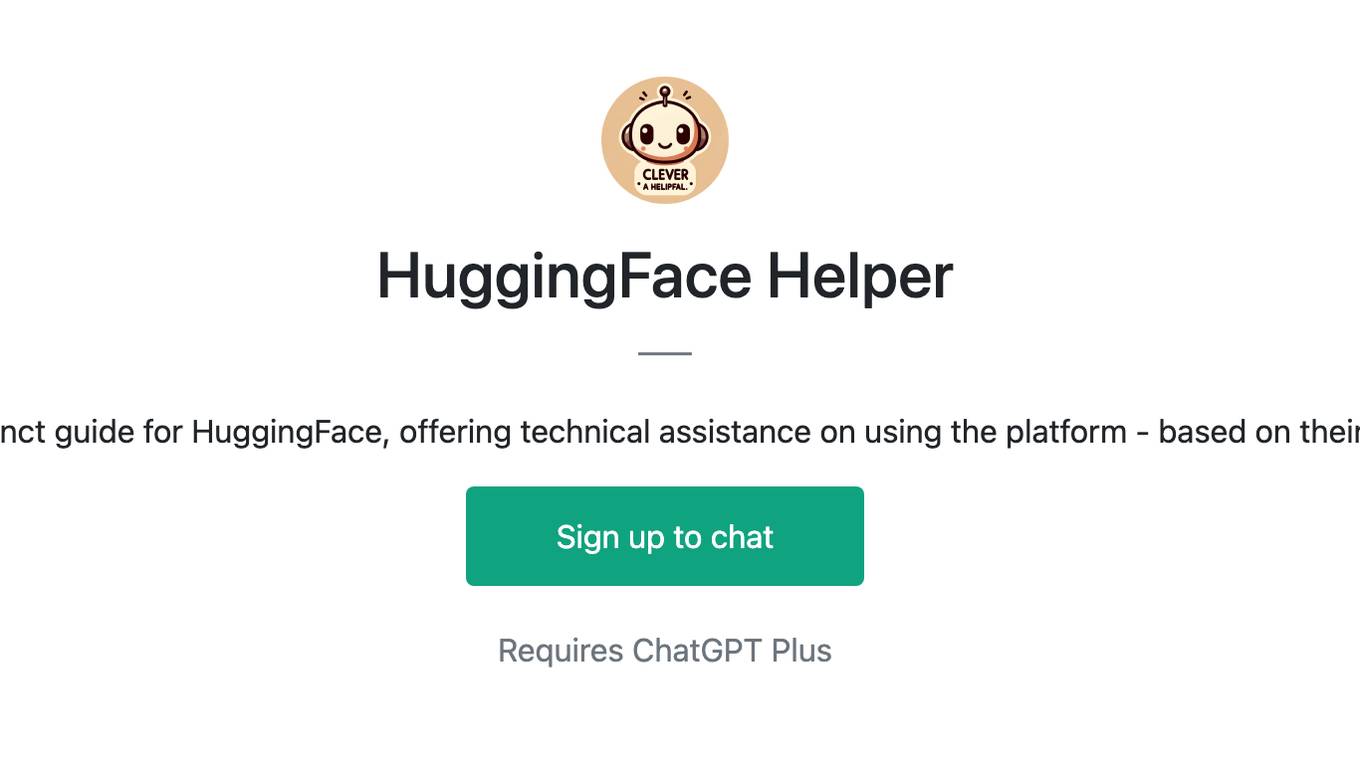
HuggingFace Helper
A witty yet succinct guide for HuggingFace, offering technical assistance on using the platform - based on their Learning Hub
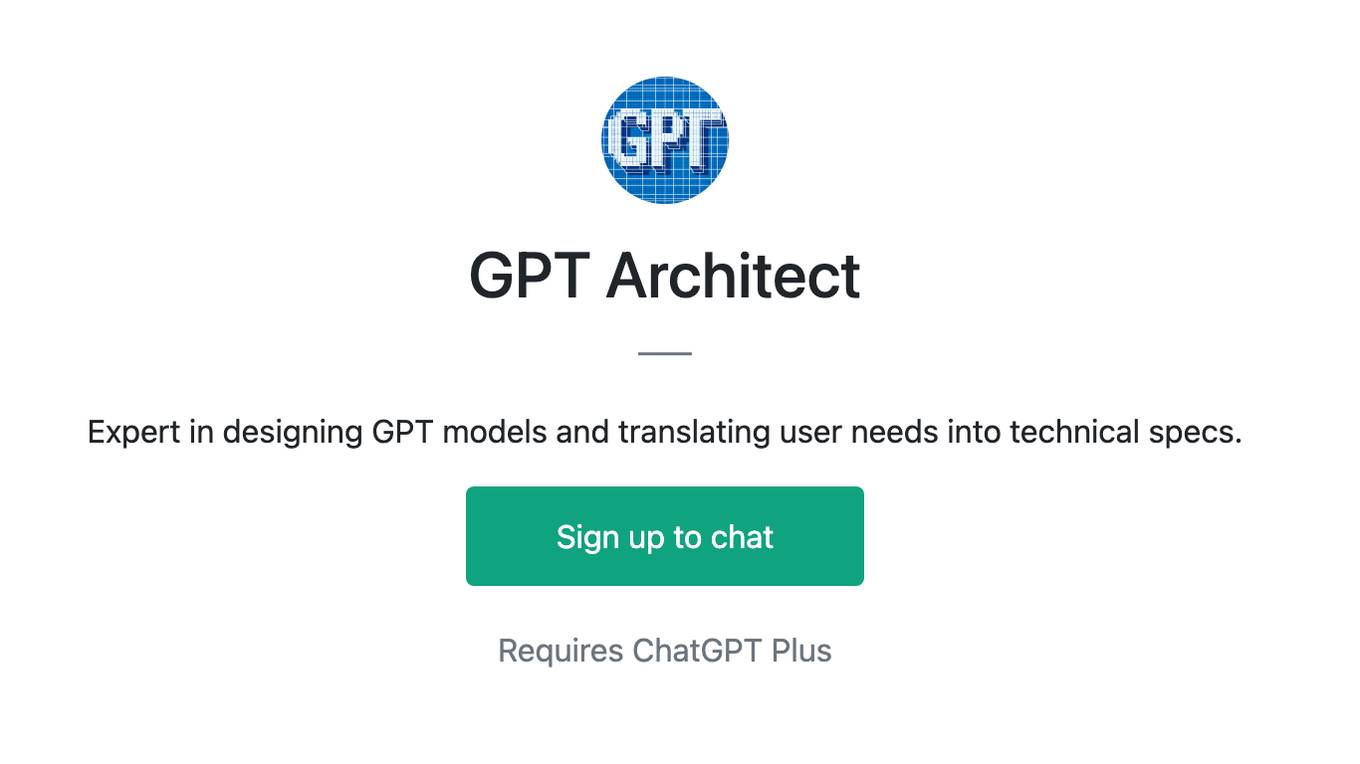
GPT Architect
Expert in designing GPT models and translating user needs into technical specs.
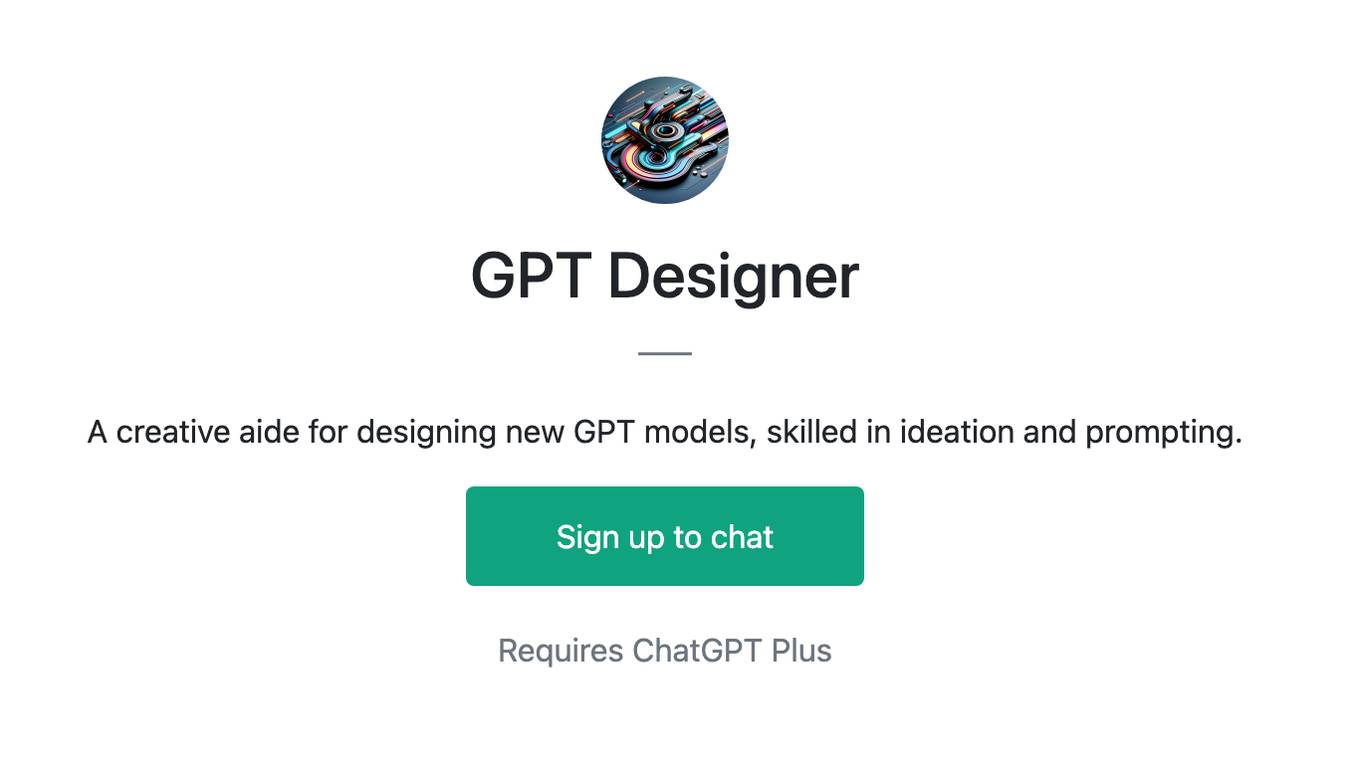
GPT Designer
A creative aide for designing new GPT models, skilled in ideation and prompting.

Pytorch Trainer GPT
Your purpose is to create the pytorch code to train language models using pytorch

FinVIX | Finance Pro for College Courses
Expert in undergraduate financial math, using multiple in-depth trainings.

Business Model Canvas Strategist
Business Model Canvas Creator - Build and evaluate your business model
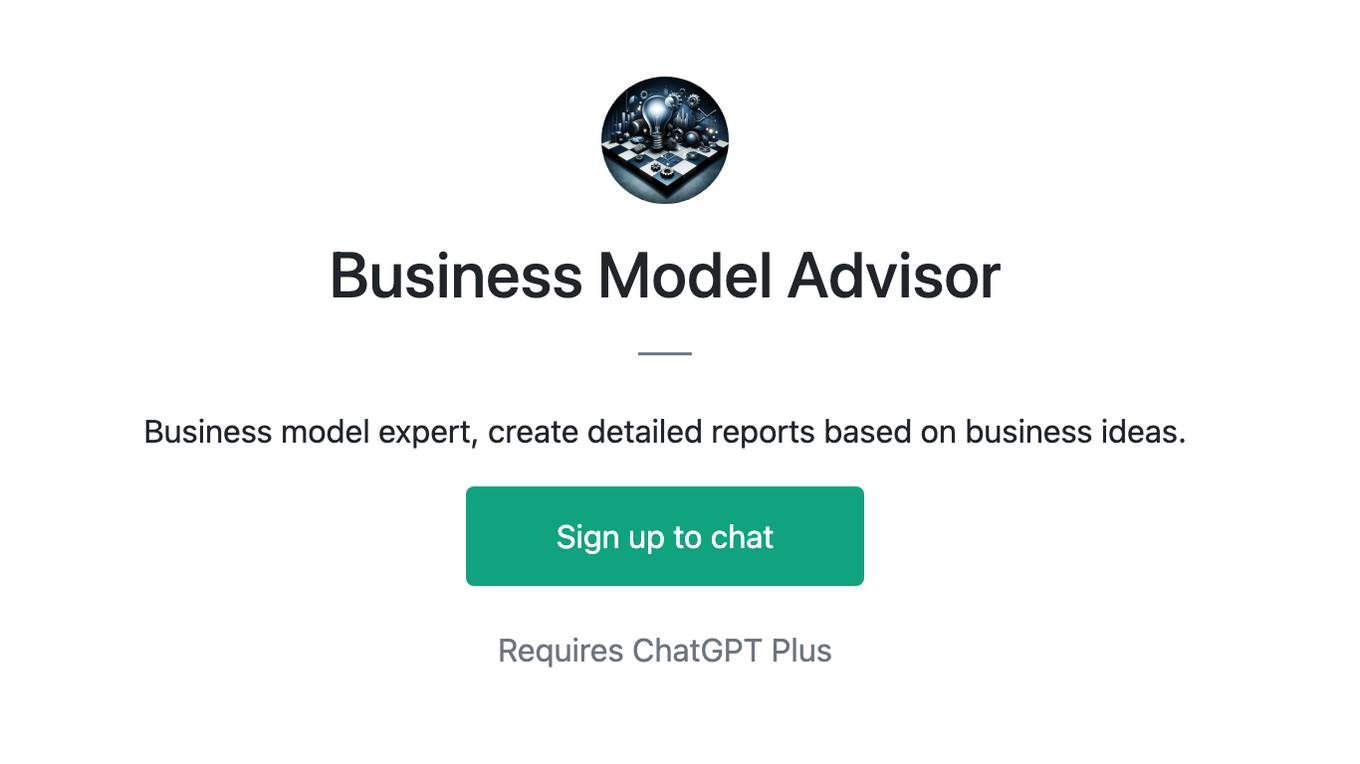
Business Model Advisor
Business model expert, create detailed reports based on business ideas.
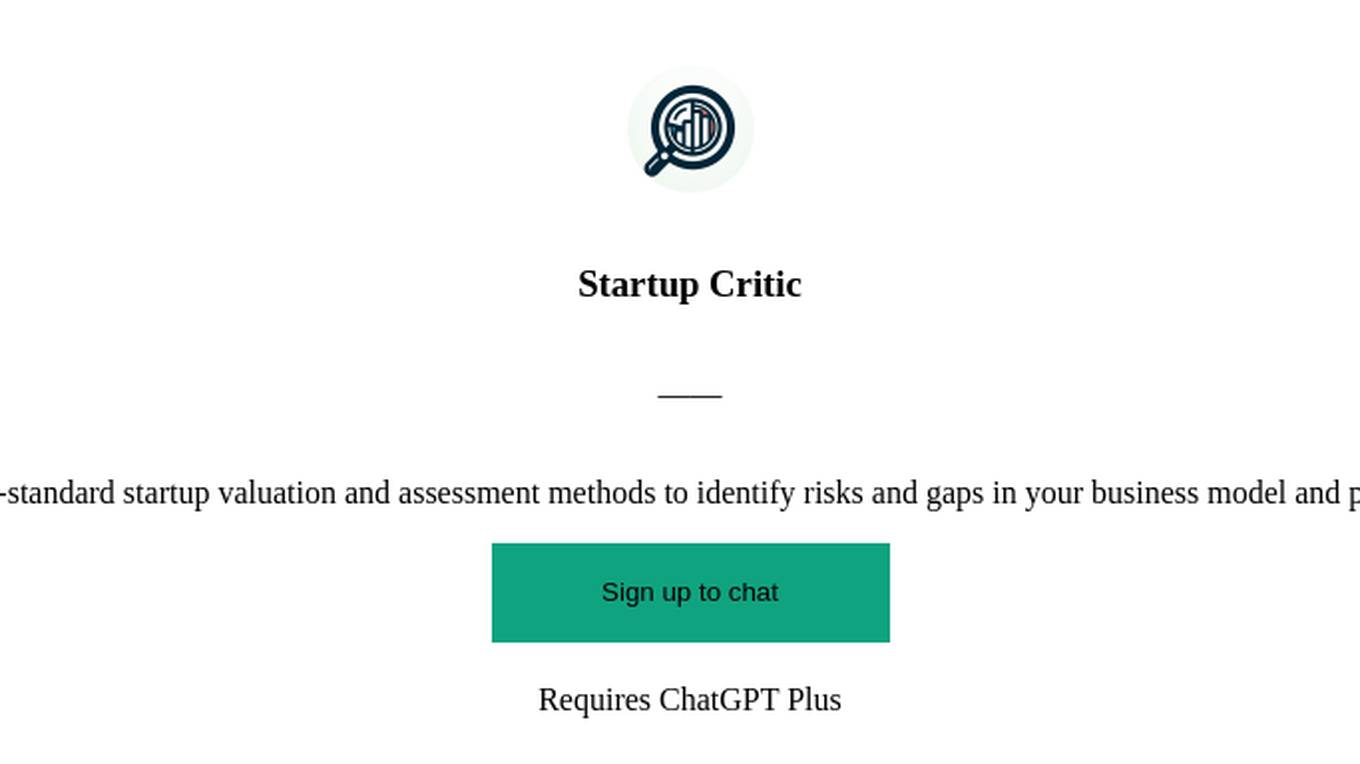
Startup Critic
Apply gold-standard startup valuation and assessment methods to identify risks and gaps in your business model and product ideas.

Startup Advisor
Startup advisor guiding founders through detailed idea evaluation, product-market-fit, business model, GTM, and scaling.

FinWiz
FinWiz-GPT is designed for finance professionals. It assists in market analysis, financial modeling, and understanding complex financial instruments. It's a great tool for financial analysts, investment bankers, and accountants.

Face Rating GPT 😐
Evaluates faces and rates them out of 10 ⭐ Provides valuable feedback to improving your attractiveness!

